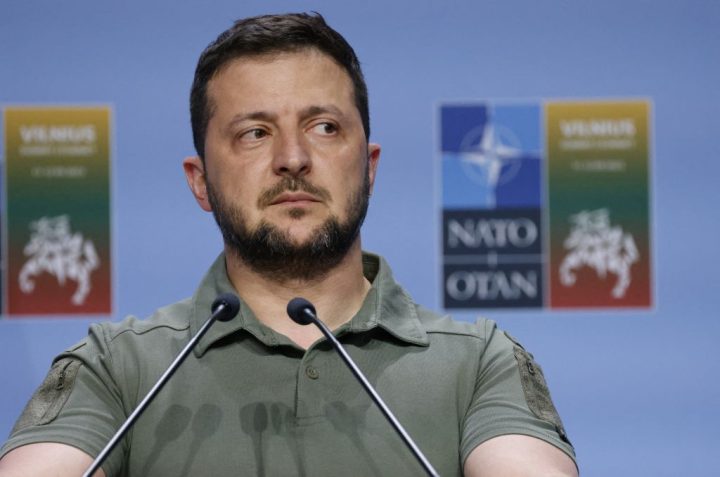Gitanas Nauseda stood outside his palace and checked his watch. The Lithuanian President’s guests – the leaders of the other 30 Nato countries, VIPs from Europe and Asia, Volodymyr Zelensky – were an hour late for dinner. Nauseda idled on the red carpet with his wife, and the couple stared at the setting sky. An adviser muttered down his phone and shook his head. The President shrugged. Nato had just issued a statement saying that Ukraine would become a member of the bloc ‘when allies agree and conditions are met’. The alliance needed to see ‘democratic and security sector reforms’. Zelensky tweeted that the statement was ‘absurd’. He had come to Vilnius demanding a timeline for Ukraine’s accession to Nato, and hadn’t got it.
On that Tuesday evening, it seemed like the summit in Vilnius was falling apart. Perhaps everyone had given up – gone home. The point of the meeting was to show Vladimir Putin that Nato was united behind Zelensky and Ukraine, but that stiff, unsentimental statement meant it clearly wasn’t.

Britain’s best politics newsletters
You get two free articles each week when you sign up to The Spectator’s emails.
Already a subscriber? Log in






Comments
Join the debate for just £1 a month
Be part of the conversation with other Spectator readers by getting your first three months for £3.
UNLOCK ACCESS Just £1 a monthAlready a subscriber? Log in